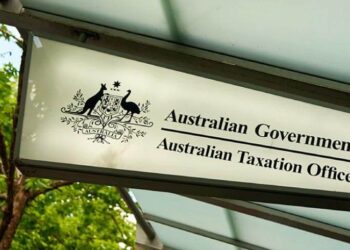Speaking in a technical webinar, Smarter SMSF founder Aaron Dunn said with the increasing compliance trend ahead, SMSFs will continue to see changes in risks that are ultimately generating thousands of documents in best practice and compliance each year.
Mr Dunn said to efficiently manage risk areas, it will be important to not overlook simple but important compliance issues such as having a valid BDBN in place.
“We sound like a broken record when we talk about this, but not following the procedure in the deed continues to be problematic,” he said.
“You can look at SMSFR 2008/3 and that really confirms for us the obligations that we must follow procedurally what is in the deed as opposed to relying upon 6.17A and 59 1A within the SIS Act.”
Mr Dunn said the other risk area that will also be seen is the reversionary pensions conundrum.
“Sometimes we observe arrangements where there are conflicts in which the benefits are going to be dealt with, so make sure you have all your ducks lined up in a row with ensuring that the benefits are actually going to flow where they should be,” Mr Dunn said.
“There are clearly benefits to reversionary, but there are instances where reversionary are not going to be advantageous. But you have to make sure you are building out a program or a roadmap for your client in this area, not only when they start but where an ongoing basis is absolutely critical.”
In regard to LRBAs, it will be important to comply with the structure and make sure that it is meeting the safe harbour at all times, according to Mr Dunn.
“With the change in interest rates, mak[e] sure you are documenting those decisions, but not just because of the safe harbour, also because of what the loan facility might say and if they are going through a refinancing process,” he said.
Mr Dunn said in regard to pension documents that they need to be adequate and that they are linked and consistent with the fund’s operative deed.
“What does the deed say in respect to the way in which that pension can be paid. Is it a resolution, is it a contract, is it an agreement or by way of deed?” he said.
“Just make sure that there is consistency there, because we continue to see a number of inconsistencies. Also, be aware of how you might deal with whether you can’t actually find the documents or they didn’t exist in the first place around retirement income streams, and there’s a lot of time spent on over the last few years in dealing with lost pension documents.”
In regard to related-party transactions, make sure these are clearly compliant with SIS, with the valuations closely following market valuation guidance.
“Hopefully, most of us are following the guidance, but in that Law Companion Ruling 2019/D3 around NALE, some of the examples the ATO have around the market substitution rules make it quite clear that the fund won’t be acquiring that asset where it may have been lower than expected,” he said.
“Not only does that create an issue in regard to acquisition value, but it will then taint the income, both ordinary and statutory, in the long term of that particular investment. So, related-party transactions here are absolutely fundamental to get right.”
Lessons for advisers
In approaching the risk areas for this year, Mr Dunn said for accountants and advisers, the lesson at this stage is the need to be more clear in the scope of work with clients.
“We may have taken on more and we may have taken on less with our clients over the last 12 months, so what’s in and what’s outside of your engagement will absolutely be critical,” he said.
“We are moving to a phase where signing documents is becoming much easier by going digital, but it is critical in my view that you shouldn’t have trustees simply sign things. We need to continue to ensure that they understand what they’re saying, that they sign the ATO trustee declaration stating to that effect.”
Mr Dunn said the reality is that documentation is increasing with compliance rather than reducing.
“It’s around expectations when we think about auditors over the past. We can go back to the Cam and Bear v McGoldrick case and other examples, but load on COVID on top of that and you can start to see why we’ve got more and more of the documentation, which is going to continue to be key around what happens inside our SMSFs,” Mr Dunn said.
“Always think about the advice process, warnings you might need to be putting in place subject to what you can and can’t advise on and then what role you might play in providing advice.
“While I’m a huge advocate of what our software providers have done in the industry, we also need to ensure that we’re using our own skills, knowledge and intellect rather than just relying upon our software to be doing the job for you.”


